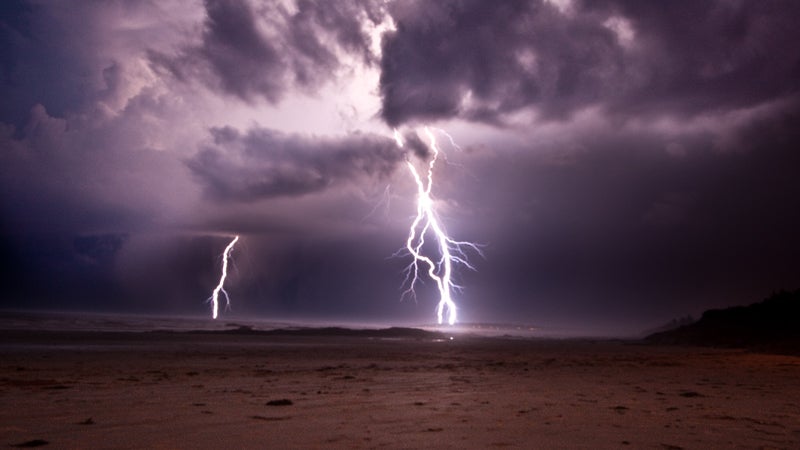What if your outdoor tech could charge in just 30 seconds? That’s the question we’ve started asking after an announcement last week about a new battery charger.
The technology uses bio-organic peptide molecules to speed up power output, according to a. Harnessing that chemical reaction could revolutionize everything from electric cars and bikes to GPS devices.
The idea isn’t as far-fetched as it might sound. Rob Enderle, the principal analyst at Enderle Group and an expert on battery tech, verified the claims about fast charging and said it will likely debut sometime in 2016. One of the biggest challenges is reducing the size of the charging unit, he says. The prototype charger is about the size of two or three smartphones stacked together.
“This has to push a lot of current over a short period, which would typically require a very large charger to keep the heat down to acceptable levels,” says Enderle. What could work instead, he says, is a simple charging pod located at a park, gas station, or rest area. You’d walk up to a wall-mounted unit and charge up faster than you could buy a Gatorade.
“Recharging needs to become easier and more convenient,” says Walker Ford, the senior electrical engineer at . “This is a low-hanging fruit for improved experience with small devices. Currently you have to remember your cable, then find a USB port, then look at the USB port to determine the correct orientation.”
Super-charging abilities will likely mean more technology in the backcountry. And while much of this is still theoretical, here are a few potential scenarios where fast-charging tech might overlap with the outdoor world.
GPS Devices
Never get lost again. That’s the promise of quick charging for GPS handhelds like the Garmin eTrex. As Enderle noted, the fast-charging battery packs might be too large to fit in your backpack, but once the technology evolves, you’ll be able to charge up in seconds from anywhere around the world with a portable battery.
Fitness Trackers
We live in a society where the quantified self is becoming commonplace. Our phones can track how many steps we take using a free app. But one problem with most fitness trackers and smartphones is that we constantly have to recharge them, which takes time and can feel like tech babysitting. With fast charging, fitness gadgets could become even more pervasive.
Electric Bikes
Love ‘em or hate ‘em, e-bikes are here to stay in one form or another. And fast charging could help power the electric-bike revolution. Say you’re riding in Yellowstone where you can pull into a smartbike station, charge up within a few seconds, and then continue on your route. The concept works in more places than just national parks. “Cities could set up charging stations for bikes much like Tesla Superchargers,” says Enderle.
Rugged Tablets
If fast charging worked for laptops and tablets—especially those made for rugged outdoor use—we might see more of the tech in the backcountry. One of the limiting factors in working in a remote area (apart from the lack of WiFi) is that it takes an hour or more to fully recharge a laptop, and back-up batteries are heavy. If a laptop or tablet could fully recharge in 10 minutes, we might be more likely to use one to plot a route at a campsite. We’ll let you decide whether’s that a good thing or a bad thing.
Wearable Tech
The wearable tech industry faces a serious predicament. Gadgets like the Samsung Galaxy Gear smartwatch only last about a day before needing to recharge. If fast-charging becomes a reality, we might be more likely to strap on one of these gadgets. “This would be perfect for small wearable devices that you could charge while taking your morning shower,” says Enderle.
Fishing and Hunting
Maybe you’ve been stuck in the middle of a field with a battery-charged gadget, then realized it was running low on juice. Having a back-up battery helps, but the long charge time can be frustrating. If you could recharge your fish finder in less than 10 seconds, you’d spend more time fishing and less time worrying about the tech.


